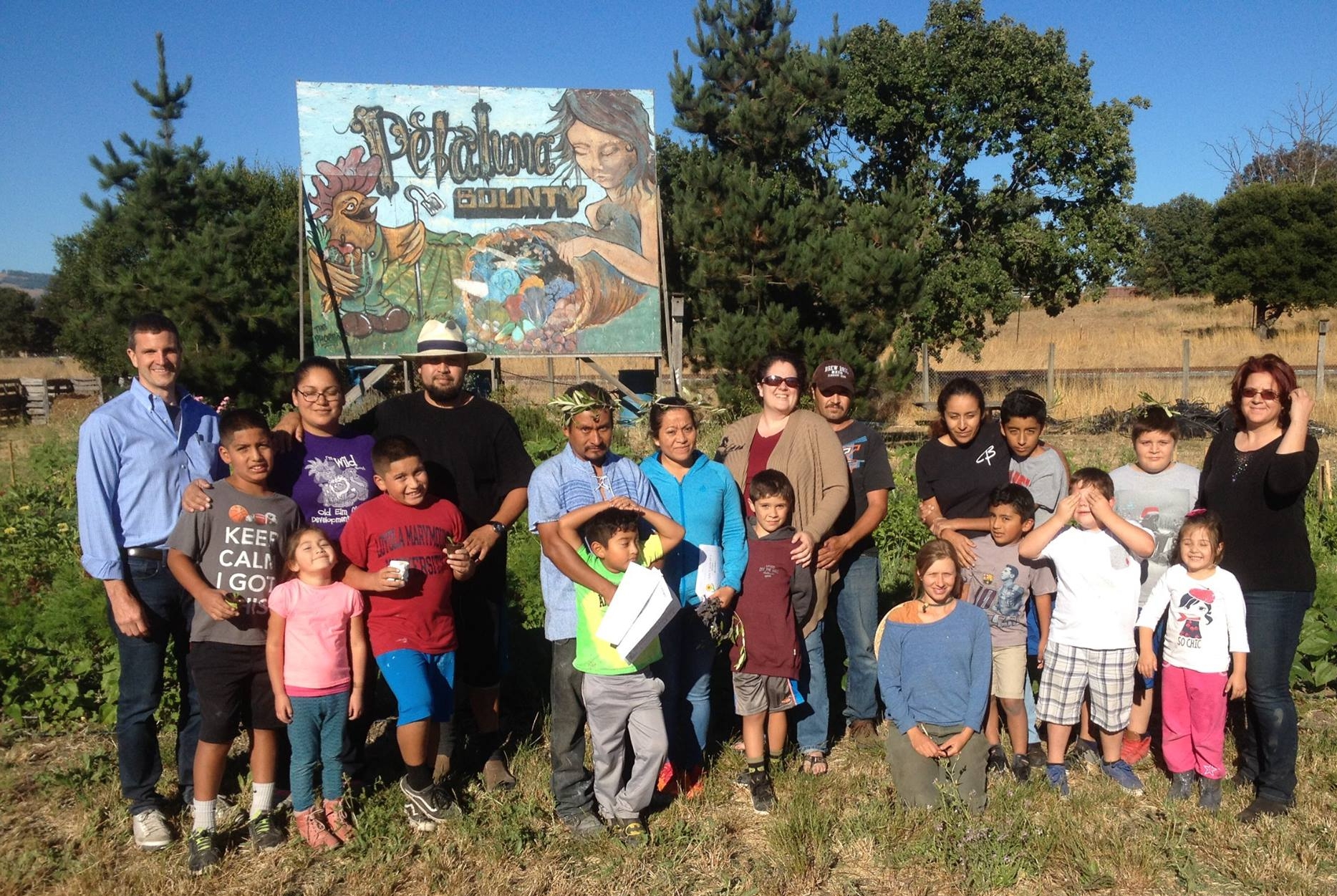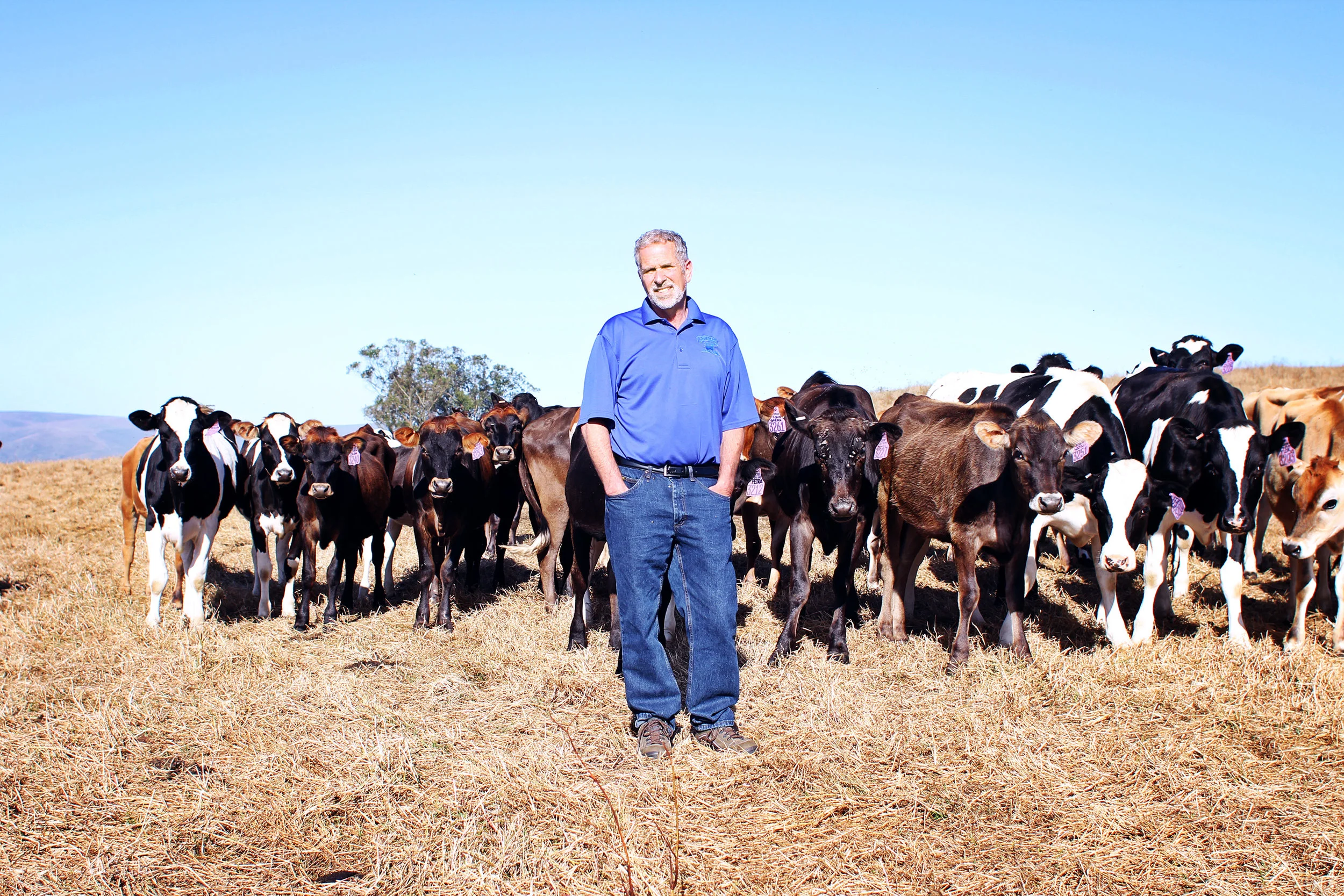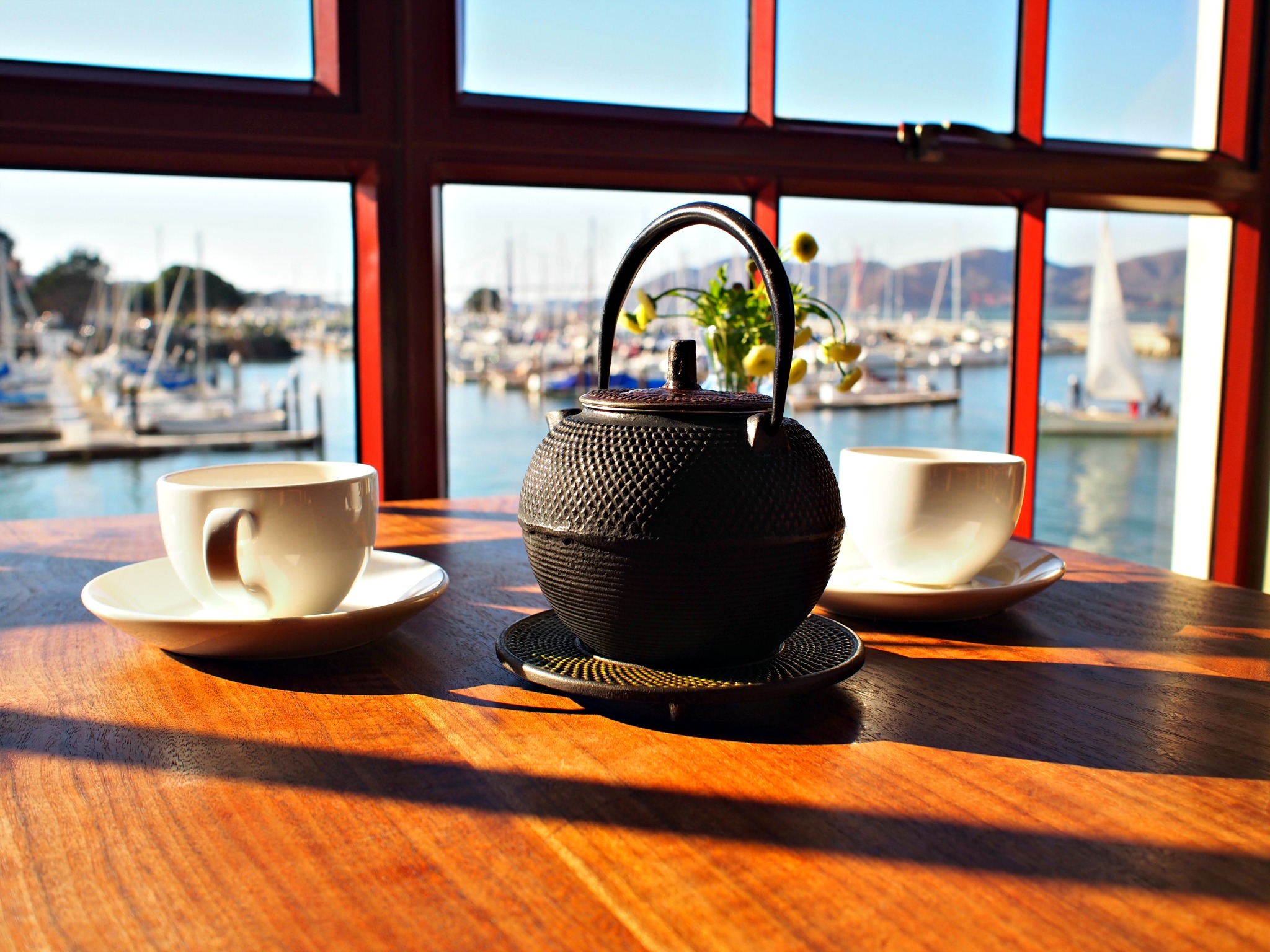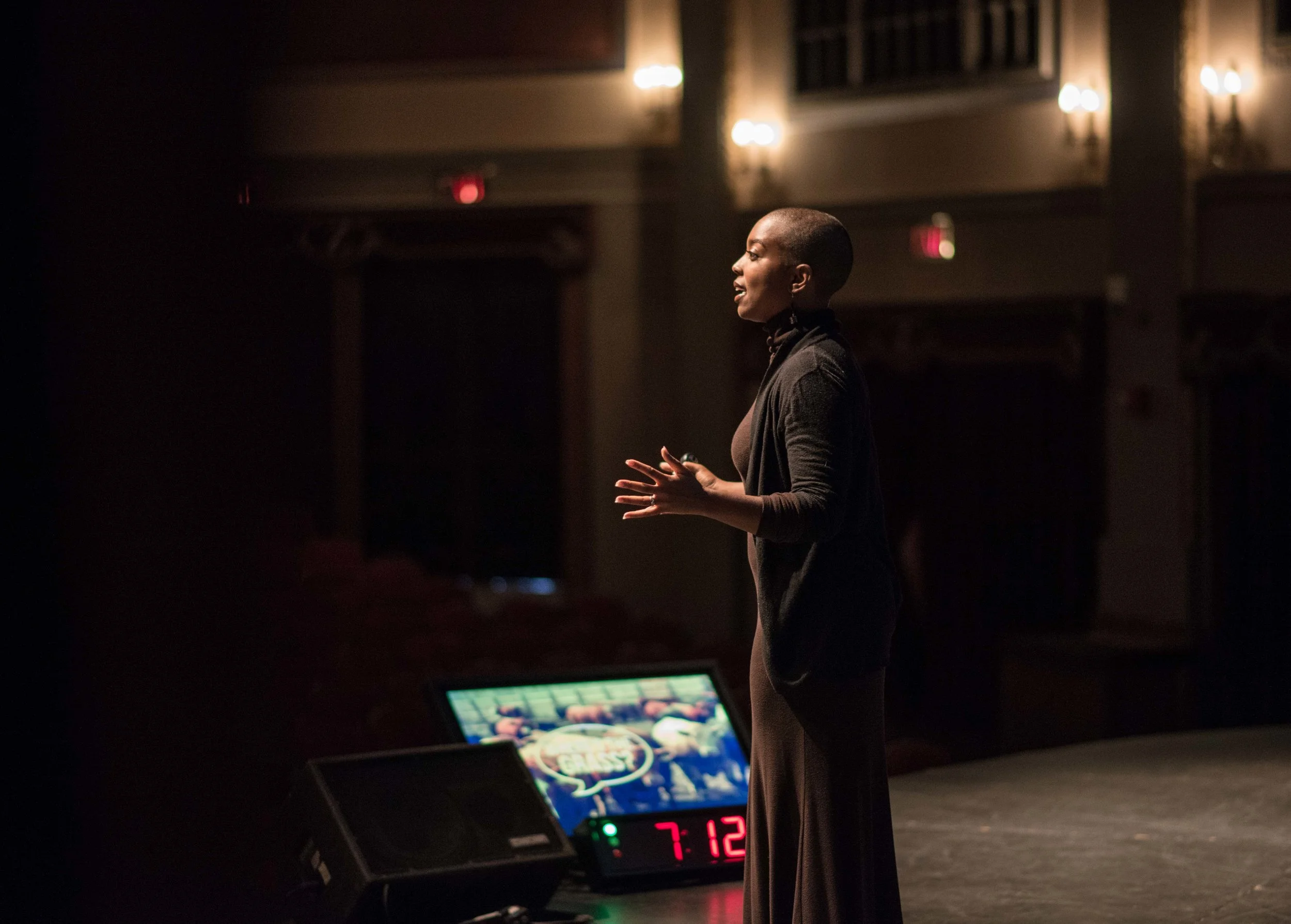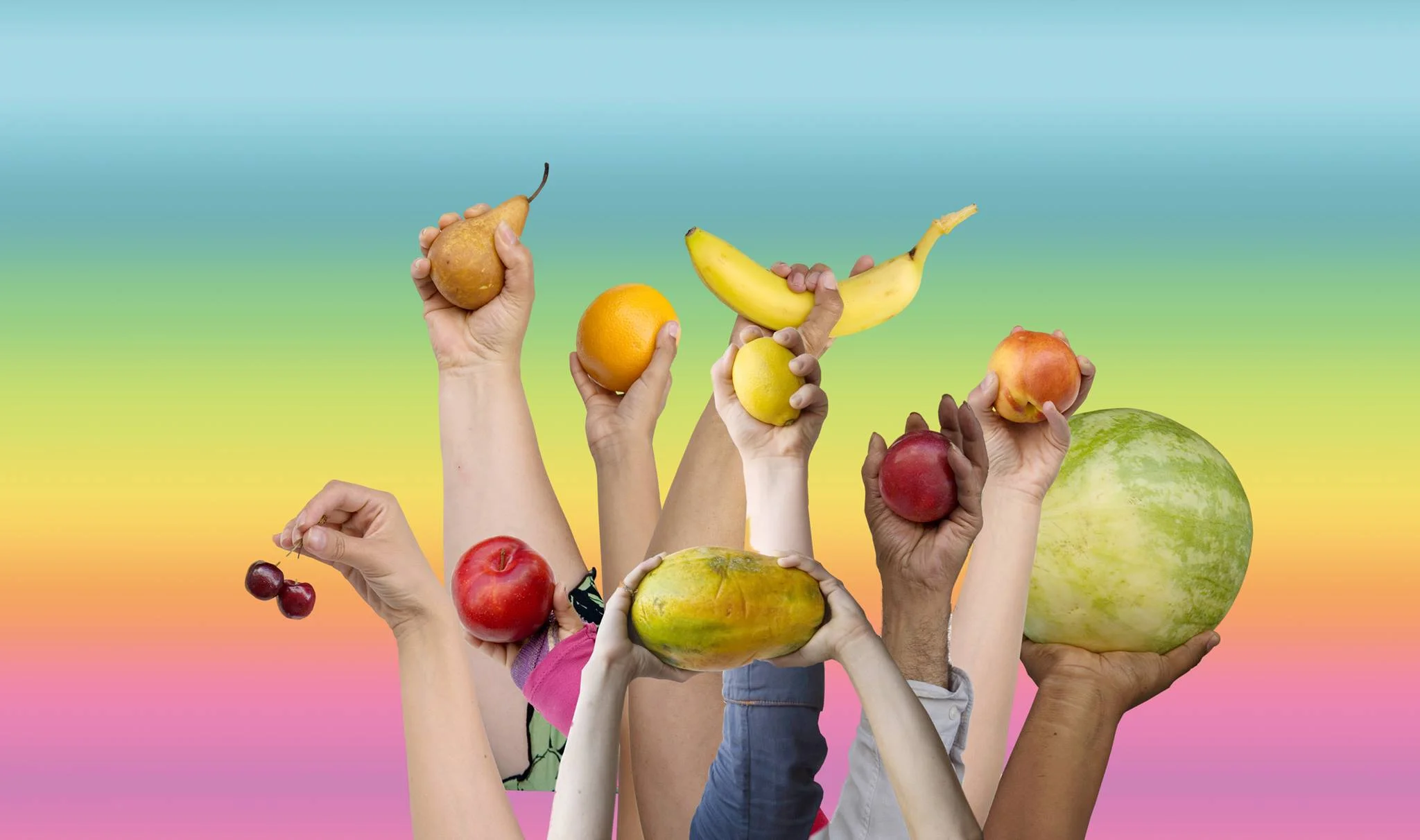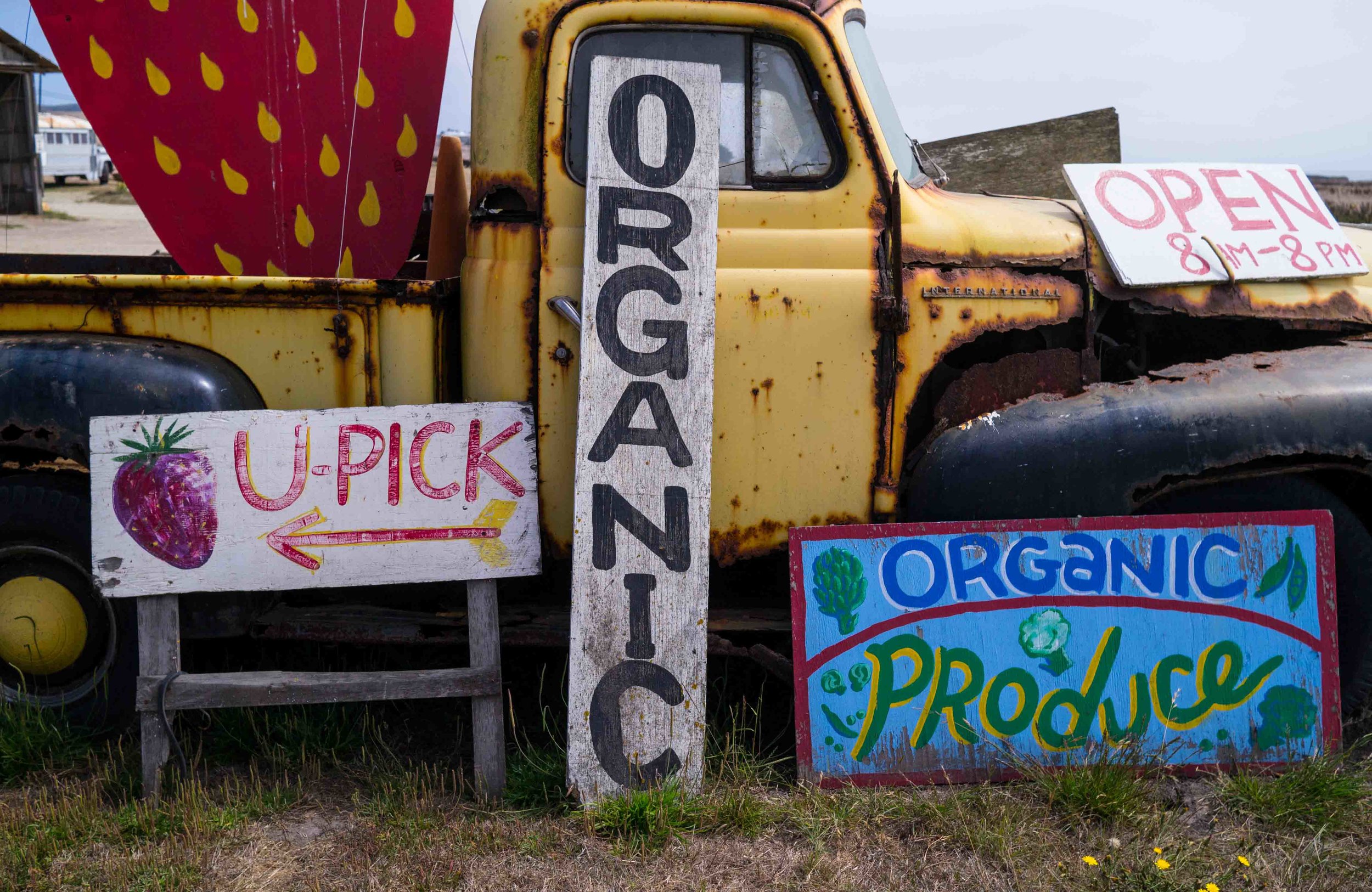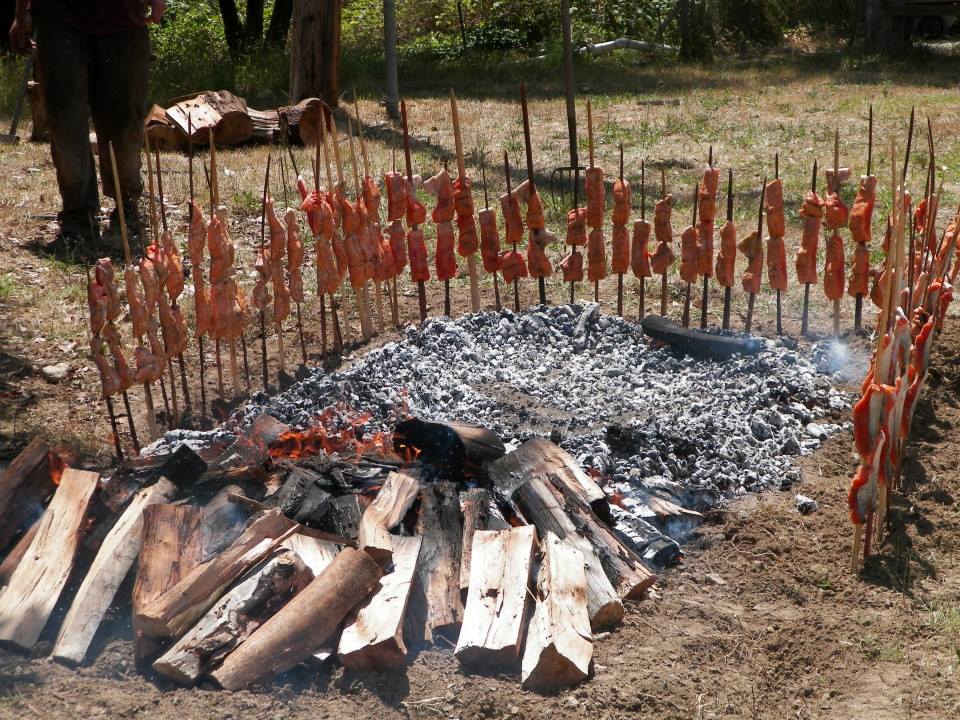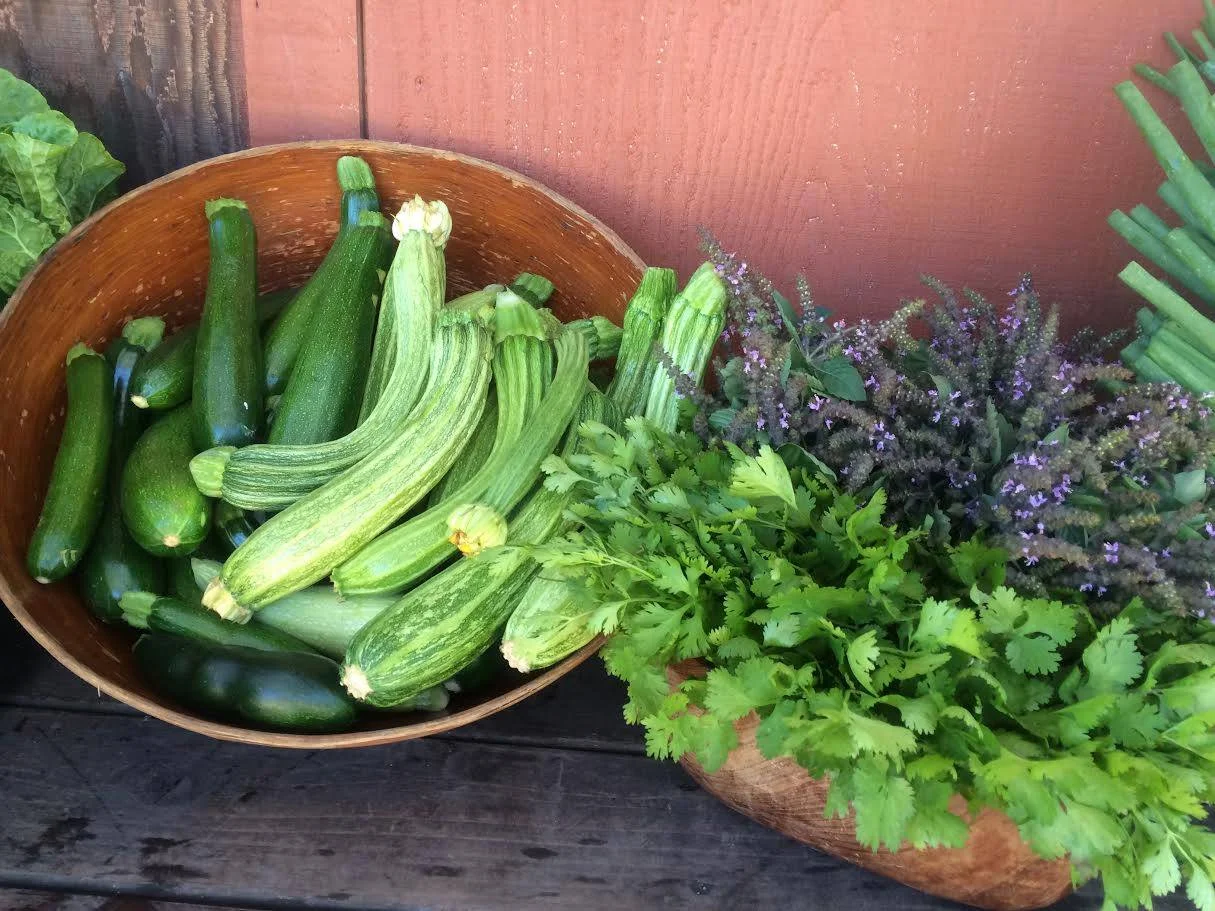Sana Javeri Kadri is a sometimes salty, permanently hungry, rather creative human. She was raised in post-colonial Bombay, wound up in the produce aisles of California and can be currently found @sanajaverikadri on Instagram or in person wherever there are vegetables to be found. She is also schemer-in-chief for Diaspora Co-Op. In this episode, Sana talks with Chelsea about living between Mumbai and the Bay Area, the role of aesthetics in telling difficult stories, and decolonization as a series of questions.
49: Karla Diaz on cooking in prison and the migration of food traditions in and out of incarceration
Karla Diaz is an artist, writer, and activist. Born in Los Angeles and raised both in Mexico and L.A., her work uses performance and writing to question institutional power, explore social practices and cultural relationships, create collaborations and provoke dialogue among diverse communities. She received her MFA from California Institute of the Arts and has exhibited her work in local, national and international venues including MOCA, LACMA, the Whitney, the ICA Boston, and the Serpentine Gallery in London. She is co-director and founding member of Slanguage Studio. Her ongoing project, Prison Gourmet (2010-present) is a multi-media project informed by prisoners’ recipes made from commissary food items. She recently received an Art Matters award to continue its development. In this episode, Karla talks with Chelsea about cooking in prison and the migration of recipes and food traditions in and out of incarceration.
46: Kitazawa Seed Company’s Maya Shiroyama and Jim Ryugo on 100 years of selling Asian vegetable seeds in the United States
Maya Shiroyama and Jim Ryugo run Kitazawa Seeds, a 100-year-old seed distributor based in California that specializes in Asian vegetables. The company was started by Gijiu Kitazawa in 1917, serving mostly Japanese-American gardeners on the West Coast. It closed for four years when the United States government sent Kitazawa and most of his customers to concentration camps during World War Two, and re-opened in 1945 shortly after their release. Maya and Jim had planted the company’s seeds in their home garden for years when a missing seed order led to them buying the company from Kitazawa’s granddaughter in 2000. In this episode, Maya and Jim talk with Devon about the 100-year history of the seed company, the global network of growers that supply their unique inventory of seeds, and the new and old varieties dear to Asian-American gardeners and farmers around the country.
44: The Peoples Kitchen Collective on nourishing a beloved community, from the farm to the kitchen to the table to the street
The People's Kitchen Collective (PKC) works at the intersection of art and activism as a food-centered political education project and cooperative business. Based in Oakland, California, their creative practices reflect the diverse histories and background of collective members Sita Kuratomi Bhaumik, Jocelyn Jackson, and Saqib Keval. Written in their family's recipes are maps of migrations and the stories of resilience. It is from this foundation that they create immersive experiences that celebrate centuries of shared struggle. Collectively cooking and sharing food is sanctified and celebrated community work in many cultures. With the passage of time, systems of imperialism--including capitalism and gentrification--have turned cooking into an inaccessible burden. In response to this inequality PKC has been creating accessible, healthy, and loving food spaces since 2007. Active in Oakland since 2011, they are committed to using local and organic ingredients whenever possible and sharing meals with as many people as we can. The goal of The People's Kitchen Collective is to not only fill stomachs but also nourish souls, feed minds, and fuel a movement. In this episode, PKC talks with Chelsea about nourishing a radical, beloved community, and feeding movement from the farm to the kitchen to the table to the street.
43: Norma Listman on preserving corn traditions and the meztizaje of food cultures in Mexico and California
Norma Listman is a Mexico City and Oakland-based chef and artist. Her practice is shaped by her heritage, and she is most interested in traditional cooking methods and the historical periods of Mexican gastronomy. Norma’s passion for the preservation of her culture and her father’s life-long work with maize have ignited her interest for working with native varieties of the crop. She began her career in some of the most prestigious restaurants of the Bay Area, managing the nationally acclaimed Camino Restaurant and long-time Bay Area institution BayWolf Restaurant in Oakland, before deciding to follow her passion and become a professional chef. As a food scholar she teaches Mexican culinary techniques at 18 Reasons in San Francisco. She currently lives in Mexico City and is focused on her research on Mexican native corn and nixtamalization. In this episode, Norma talks with Chelsea about preserving traditional corn varieties in a changing cultural and economic landscape, and the meztizaje of food traditions in Mexico and California.
40: Suzi Grady of Petaluma Bounty on addressing the root causes of hunger while addressing immediate needs
39: Albert Straus of Straus Family Creamery on building a sustainable, organic food system and revitalizing rural communities.
38: Annie Somerville of Greens Restaurant on cooking in a Zen monastery, building relationships with farmers, and supporting workers during a housing crisis
37: Nikki Silvestri on carbon farming and the need for economic power in the food movement
36: Amy Franceschini on victory gardens in San Francisco, a Seed Journey to the Middle East, and the importance of not finding a common language
Amy Franceschini is an artist and educator who creates formats for exchange and production that question and challenge the social, cultural and environmental systems that surround her. An overarching theme in her work is a perceived conflict between humans and nature, and her projects reveal the ways that local politics are affected by globalization. In 1995, Amy founded Futurefarmers and in 2004, she co-founded Free Soil, an international collective of artists, activists, researchers, and gardeners who work together to propose alternatives to the social, political and environmental organization of space. In 2008, Amy worked with the City of San Francisco to transform the plaza in front of City Hall into a modern victory garden, and to build gardens in people’s back yards. She is currently sailing from Oslo to Istanbul as part of Seed Journey, bringing seeds found in Norway and other points in the northern hemisphere to their center of origin in the Middle East and connecting with seed savers, farmers, bakers, activists and others along the way. Amy grew up on a farm in the Central Valley of California. In this episode, Amy talks with Chelsea about her victory gardens project in San Francisco, a Seed Journey to the Middle East, and the importance of not finding a common language.
Photo: RS 10 Christiania by Martin Høy
35: Jezra Thompson on Berkeley’s School Gardens and Kitchens and the unique learning environment they provide
Jezra Thompson is the Program Supervisor of the Berkeley Public School Gardening & Cooking Program, where she leads a team of garden educators and works with schools and community organizations to provide hands-on, place-based education to all students. She is a food system planner who focuses on community development, land use planning, and education. Jezra has worked on healthy food access and education at DC Greens, the California Farmers Market Association, and the USDA’s Food and Nutrition Service, and she writes for Civil Eats. In this episode, Delicious Revolution intern Rebecca Murillo talks with Jezra about the ways school gardens and kitchens provide a unique learning environment and an opportunity for students to be their own leaders in the world.
33: Fallen Fruit -Austin Young and David Burns on planting public fruit parks around the world, and fruit as an art medium and subject
32: Jim Cochran of Swanton Berry Farm on working with the United Farm Workers and growing organic when everyone says it’s impossible
31: Ron Reed of the Karuk Tribe on re-discovering traditional knowledge, uncomfortable collaborations, and renewing culture with sacred fire
DR Special #1: Kathleen, Trainee at the Homeless Garden Project
In this special episode of Delicious Revolution, Chelsea speaks with Kathleen, a trainee at the Homeless Garden Project, about her experience. This episode is a companion to episode #30, our interview with Darrie Ganzhorn, the director of the Homeless Garden Project.
30: Darrie Ganzhorn on the Homeless Garden Project and why an organic farm is a great place for people find the tools they need to build a home in the world
Darrie Ganzhorn is the executive director of the Homeless Garden Project, a 3-acre organic farm and garden in Santa Cruz, California where, as the mission statement reads, “people find the tools they need to build a home in the world.”
28: Jessica Prentice on making a worker-owned and community supported kitchen, and inviting people into their own kitchens with good ingredients
Jessica Prentice is a founder of Three Stone Hearth, a Community Supported Kitchen and worker-owned cooperative in Berkeley, California. She has loved cooking for as long as she can remember. In 1996 she completed the professional Chef’s Training at the Natural Gourmet Institute in New York. She worked as the Chef of the Headlands Center for the Arts in Marin from 1997-2001, where she founded the Headlands Hearth Bakery and Café in 2001. Jessica educated herself in sustainable agriculture issues, and in 2002 was hired as the first Director ofEducation Programs for the Ferry Plaza Farmers Market in San Francisco. Jessica coined the word “locavore” and co-created the Local Foods Wheels. She is the author of Full Moon Feast: Food and the Hunger for Connection. Recently, she has been writing about new and very old models of cooperative work. In this episode, Jessica talks with Chelsea about making a worker-owned and community supported kitchen, and inviting people into their own kitchens with good ingredients
27: Michaela Leslie-Rule on paying attention to culture in public health and nutrition, the complexity of food choices, and bridging the generational gap in food knowledge.
Michaela Leslie-Rule is a digital media producer, storyteller and social scientist. As the owner of Fact Memory Testimony she has been fortunate to collaborate with ITVS, Memphis Music Initiative, Community Foundation for Monterey County and Nike and Firelight Foundations’ Grassroots Girls Initiative. Embedded in Michaela’s approach to research, advocacy and communication is elevating constituent voices through the use of storytelling. She is particularly interested in participatory methods for measuring and documenting social and organizational change, and has designed and implemented participatory projects on four continents. She uses a story-centric approach to produce multimedia projects and advocacy campaigns. As the producer of IGNITE: Women Fueling Science and Technology, Global Fund for Women’s global advocacy campaign and multimedia project, she curated and oversaw the creation of five online storytelling galleries, designed and implemented an international girls’ hackathon and oversaw a coordinated advocacy effort between the Fund and UN Women demanding equal access to and control of technology for women and girls worldwide. In this episode, Michaela speaks with Chelsea about paying attention to culture in public health and nutrition, the complexity of healthy food choices, the bridging the generational gap in food knowledge.
26: Sita Bhaumik on the People’s Kitchen Collective, decolonizing foods and remedies, and magical ingredients that travel the world
Sita Kuratomi Bhaumik is an artist, writer, and educator who understands art as a strategy to connect personal and public histories. Her research focuses on decolonizing the hierarchy of the senses and impact of migration. Raised in Los Angeles and based in Oakland, she is Indian and Japanese Colombian American. Sita holds a B.A. in Studio Art from Scripps College, an M.F.A. in interdisciplinary art and an M.A. in Visual and Critical Studies from California College of the Arts. She is a founding member of the People's Kitchen Collective in Oakland, California along with Jocelyn Jackson and Saqib Keval. Together, they produce community meals that narrate our migration. The goal of The People's Kitchen is to not only fill our stomachs but also nourish our souls, feed our minds and fuel a movement. In this episode, Sita talks with Chelsea about the People’s Kitchen Collective, decolonizing foods and remedies, and magical ingredients that travel the world.
http://peopleskitchencollective.com/
http://blog.montalvoarts.org/blog/flavors-of-resilience-the-peoples-kitchen-collective
http://www.artpractical.com/review/the_other_senses/
http://hyphenmagazine.com/magazine/issue-17-family-spring-2009/spice-war
25: Anna Lappé on the connections between food systems and climate change, the myth that we need toxic chemicals to feed the world, and the growing influence of the food movement
Anna Lappé is a bestselling author and widely respected educator, known for her work as an expert on food systems and as a sustainable food advocate. She is the co-author or author of three books and the contributing author to ten others. Anna’s work has been translated internationally and featured in The New York Times, Gourmet, Oprah Magazine, among many other outlets. Named one of TIME magazine’s “eco” Who’s-Who, Anna is a founding principal of the Small Planet Institute and the Small Planet Fund with her mother, Frances Moore Lappé. She is also the founder and director of the Real Food Media Project, which uses creative movies, an online movie contest, a web-based action center, and grassroots events to grow the movement for sustainable food and farming. Her latest book, Diet for a Hot Planet: The Climate Crisis at the End of Your Fork and What You Can Do About It, was named by Booklist and Kirkus as one of the best environmental books of the year. Anna is also the co-author of Hope’s Edge, which chronicles doc ial movements fighting hunger around the world, and Grub: Ideas for an Urban Organic Kitchen, showcasing the ecological and social benefits of sustainable food with seasonal menus from chef Bryant Terry. In this episode, Anna speaks with Chelsea about the connections between food systems and climate change, debunking the myth that we need toxic chemicals to feed the world, and food movement’s growing influence in popular politics.
August 15

